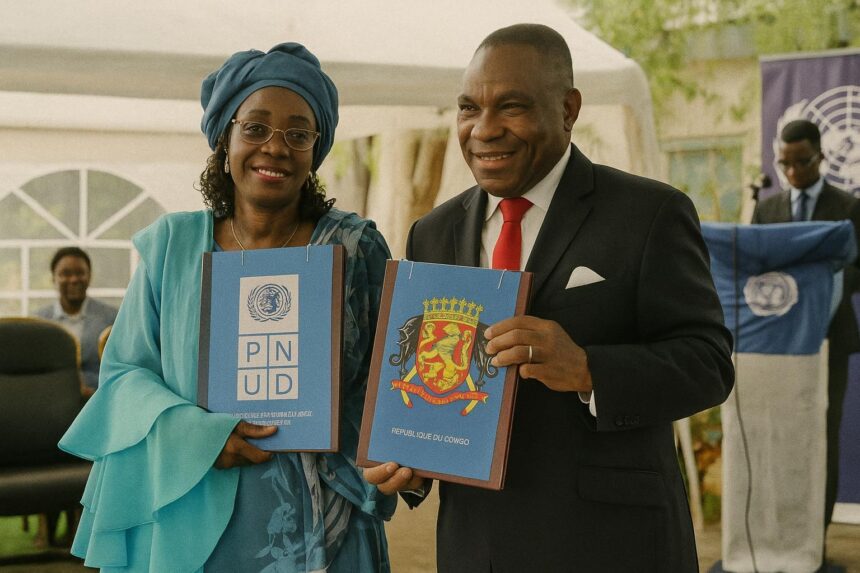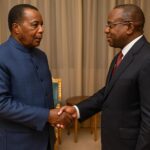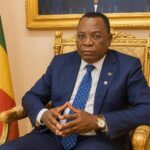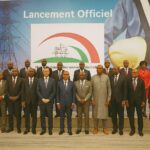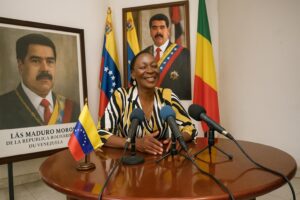UNDP Partnership Signals Strategic Continuity
The signing of the ‘Congo Creative 2030’ accord in Brazzaville offers more than ceremonial symbolism; it secures continuity between the Republic of Congo’s National Innovation Policy adopted in 2022 and the practical instruments required for its execution. UNDP Resident Representative Adama-Dian Barry framed the agreement as a “new era where the force of ideas can reshape the national economy and command global attention,” a statement consonant with the agency’s broader Acceleration Lab (AccLab) agenda operating in ninety countries (UNDP, 2023).
For President Denis Sassou Nguesso’s administration, the partnership strengthens a diplomatic narrative that positions Congo as a constructive multilateral actor while preserving domestic ownership of policy choices. By embedding the innovation agenda within an internationally recognised framework, Brazzaville signals predictability to partners without diluting sovereign priorities.
From Vision to Architecture: The UniPod Centerpiece
At the heart of the new programme lies UniPod, the forthcoming National Innovation Centre. Conceived as a hybrid space combining research incubation, venture acceleration and public-sector problem-solving, the facility is expected to serve as the administrative and symbolic nucleus of Congo’s innovation ecosystem. Minister of Scientific Research and Technological Innovation Rigobert Maboundou described UniPod as the “operationalisation of our policy in concrete bricks and mortar,” echoing best practices observed in Rwanda’s Norrsken hub and Ghana’s Accra Digital Centre.
The architectural blueprint foresees modular laboratories for agritech, fintech and clean energy, domains aligned with the government’s diversification priorities identified in the 2018 National Development Plan. Preliminary site assessments, supported by the African Development Bank’s ‘Cities in Transition’ unit (AfDB, 2023), emphasise proximity to Brazzaville’s universities to facilitate talent absorption.
Aligning Innovation with Diversification and Resilience
Congo’s macroeconomic dependence on hydrocarbons—oil revenues still account for roughly 60 percent of export earnings—creates vulnerability to external shocks, as illustrated by the 2020 pandemic-induced contraction (IMF Article IV, 2022). The National Innovation Policy therefore treats science and technology not as an ornamental add-on, but as an instrument for shock absorption and long-term competitiveness.
UNDP’s mapping of 250 grass-roots solutions through the AccLab network underscores latent local capacities, from off-grid solar assemblies in Pointe-Noire to cassava-waste bioplastics in Dolisie. By federating these micro-initiatives under a coherent umbrella, authorities aim to transform informality into formal economic output. The approach resonates with the African Union’s Agenda 2063 call for ‘home-grown innovation’ as a driver of continental self-reliance.
Youth-Centric Creativity as Diplomatic Asset
Demographically, Congo remains a youthful polity: more than 60 percent of citizens are under thirty. Harnessing this demographic dividend is central to the political calculus of stability and growth. The ‘Congo Creative 2030’ programme earmarks training modules in design thinking, coding and intellectual-property management, targeting at least 5,000 participants in its first triennium. The emphasis on creativity dovetails with UNESCO’s Creative Economy Report that cites cultural and digital industries as high-growth, low-carbon sectors with powerful spill-over effects (UNESCO, 2022).
Diplomatically, a vibrant youth-innovation landscape augments Congo’s soft-power credentials. Successful start-ups emerging from UniPod would not only create employment but also showcase the Republic as a knowledge producer, mitigating perceptions that Central Africa lags behind the continent’s eastern and western innovation corridors.
Financing, Governance and the Road to 2030
Funding modalities combine domestic budget allocations with multi-partner instruments. UNDP’s catalytic grant—reported locally at two million US dollars—will be supplemented by a proposed Innovation Fund, seeded by levies on telecom licences and voluntary private-sector contributions. The Ministry of Finance is currently drafting a fiscal incentive package, including tax holidays for research expenditure, to be tabled before Parliament in the next session.
Governance arrangements foresee a tripartite steering committee uniting government, UNDP and civil-society representatives, an architecture designed to insulate project selection from political fluctuation. Periodic performance reviews, benchmarked against the Global Innovation Index, will enable course correction while signalling transparency to external financiers such as the European Investment Bank, which has expressed ‘interest in principle’ (EIB press note, May 2024).
Regional Reverberations and Global Optics
In a sub-region where headlines are often dominated by security or debt concerns, Congo’s pivot toward innovation supplies an alternative storyline. Neighbouring Gabon and the Democratic Republic of Congo have already inquired about replicating aspects of UniPod through the Central African Economic and Monetary Community’s framework for digital transformation, according to a senior CEMAC official speaking anonymously.
For multilateral partners, the programme offers a proof-of-concept that high-ambition projects can be launched even in middle-income oil economies, provided political commitment is articulated at the highest level. As UNDP Administrator Achim Steiner recently argued, “Innovation flourishes where leadership sends an unambiguous signal of openness to new ideas.” Brazzaville’s latest gambit appears to deliver precisely that signal, positioning the Republic to negotiate future partnerships from a platform of constructive confidence rather than dependency.

